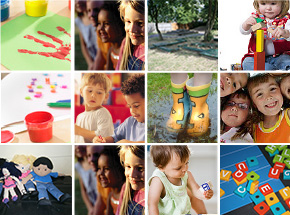| Carmel Caterpillars Preschool |
|
- > Home
- > About Us
- > KCC feedback
- > Our Staff
- > Useful links
- > For Parents
- > Gallery
-
>
Our Policies
- > Image Use Policy
- > Social Networking Acceptance Use Policy
- > Admissions Policy
- > Biting Policy
- > Settling in Policy
- > Keyperson Policy
- > Special Educational Needs & Disability Policy
- > Safeguarding
- > Equal Opportunities Policy
- > Achieving positive behaviour
- > General Data Protection Regulation Policy
- > Record Keeping Policy and Procedures
- > Confidentiality and Client Access to records Policy
- > Disclosures and Disclosure Information
- > Online Safety Policy
- > Health and Safety Policy
- > Mobile Phone / Electronic Communication Usage Policy
- > Risk Assessment Policy
- > Maintaining children's safety and security on the premises Policy
- > Emergency Evacuation Procedure
- > Parental Involvement Policy
- > Administering Medicines Policy
- > Managing Children with allergies, or who are sick or infectious Policy
- > Coronavirus Pandemic Policy 2020
- > First Aid Policy - Promoting Health and Hygiene
- > Head Lice Policy
- > Looked after children ( Safeguarding Children)
- > Uncollected Child Policy
- > Missing Child Policy and Procedures
- > No Smoking / E cigarettes/ Drugs and Alcohol Policy
- > Food and Drink Policy
- > Animals in the setting Policy
- > Outside Space/ Garden Policy
- > Sun Cream Policy
- > Outings and Visits Policy and Procedures
- > Nappy Changing Policy
- > Staffing Policy
- > Conflict Of Interest Policy
- > Student Placement Policy
- > Working in Partnership with other Agencies
- > Making a Complaint Policy
- > Babysitting Policy
- > Selecting Equipment/ Resources Policy
- > Attendance Policy
- > Contact Us

Carmel Caterpillars Pre-School
Online Safety Policy
Policy Statement
Online safety or E-safety is part of the safeguarding "duty of care" which applies to everyone working with children and young people. It includes education on the safe and responsible use of technology as well as the policies, procedures, risk assessments and infrastructure that is implemented to safeguard the Pre-School community.
Responsibilities regarding online safety
- Safeguarding policies cover the use of mobile phones and cameras within our setting.
- All staff are trained to recognise inappropriate behaviour displayed by other members of staff including inappropriate sharing of images.
- Designated Safeguarding Leader (DSL) or Manager is responsible for ensuring communication through our Facebook group and website is appropriate, and in line with the settings safeguarding and General Data Protection Regulations (2018), and reserves the judgement to delete any material deemed inappropriate.
- Members of staff play an essential role in creating a safe culture. They are also likely to be the first point of contact for online safety incidents or be in a position to identify behaviour changes which could indicate that an individual is at risk of harm.
- Any staff maintaining Facebook or the website, will always adhere to our online safety guidelines.
Key online responsibilities for parents/carers
Parents and carers play a crucial role in developing children's safe and responsible online behaviours, especially as most of their access to technology occurs off school site.
Parents and carers have a responsibility to work in partnership with Pre-School to re-enforce online safety messages, and to role model, promote and encourage safe online behaviours, wherever and whenever children use technology.
Consideration with regards vulnerable children
Children and young people may be considered to be vulnerable for a variety of reasons. These include children with SEND, and or mental health needs, children in care, children who have experienced trauma or abuse, children with low self-esteem, children who have English as an additional language, children who are considered vulnerable on a temporary basis, due to personal or specific circumstances.
Vulnerable children will have individual needs that present a range of issues when teaching online safety. Some common difficulties may include:
- Lack of social awareness and understanding
- Naivety or lack of trust
- Transferring skills or concepts
- Unable to verbalise concerns
- Some children may have poor recall and difficulties with learning through experience
- Disrupted or a traumatic childhood
- Poor attachment
- Lack of boundaries
- Poor understanding of risk
Training and engaging staff
All staff are included in online safety training and are able to recognise possible risks and know how to respond. Training is ongoing and all staff are made aware of updates as appropriate.
A risk assessment should be undertaken on each new technology so that effective and safe practice can be developed.
Leaders and managers will need to keep up to date with new technologies and be ready to develop appropriate strategies.
The original of this document was signed on behalf of Carmel caterpillars Pre-School Committee by the current Chairperson
![]()
Our Gallery | LocationCarmel Caterpillars Carmel Hall Ufton Lane, Sittingbourne Kent ME10 1JB United Kingdom Tel : +44 7946 547347 Email : carmelcaterpillars@hotmail.co.uk | Enquiry FormPlease feel free to click on and complete our enquiry form here and we will contact you shortly Thanks |
© Copyright 2025 Carmel Caterpillars. Hosted by NurseryWeb (FootfallCam Company)


